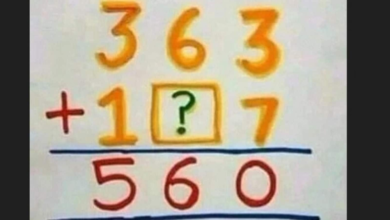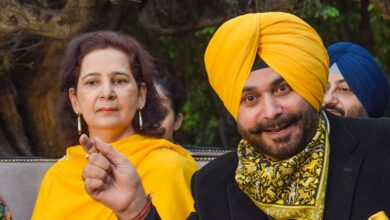Good Luck Jerry: Deepak Dobriyal’s scene-stealing performance turns the tables on Aanand L Rai’s problematic protagons

Acting isn’t a competitive sport, but if it was, Deepak Dobriyal would (and should) win every medal. He’s the sort of performer who can go toe-to-toe with stars and celebrities alike, jostle for space among crowded casts, and come out on top on virtually every occasion. A career scene-stealer, Dobriyal can be counted on to be dependably good even if the films he’s in aren’t. You might not remember much about Laal Kaptaan, for instance, but the three people who watched it would probably remember an unrecognisable Dobriyal and his two dogs.
True to form, he was the stand-out performer in the recent Good Luck Jerry, a wonderful crime comedy that didn’t get its due thanks to a so-so marketing campaign Hotstar and a sneak attack Netflix’s Darlings. As the hilariously delusional Roadside Romeo Rinku, who marks Janhvi Kapoor’s titular Jerry as his own, Dobriyal effortlessly combined the film’s broad humour with his own skills as a physical comedian.
This is an outward performance, the sort that highlights the entitlement and frustration coursing through the veins of our country’s male youth — everything about Rinku is on the nose; there is no room for subtlety. But even in the film’s loudest moments, Dobriyal somehow taps into the pitiable undercurrents of his character. There’s a sense that Rinku got left behind. While his friends moved to big cities in search of better opportunities, he stayed back, and not out of choice. Perhaps that is why he is visibly older than Jerry, and is never seen chilling with others his age. This is also probably why he has convinced himself that he is superior; wiser, even.
Rinku wears a locket bearing his own name, an oversized sweatshirt with the words ‘I miss Punjab’ written on it — ironic, perhaps, considering that he never left — and likes to experiment with his hair colour. “Tumhari jaan ko khatra hai,” he tells Jerry gravely in an early scene. “Hum kya kiye?” she asks, worried. “Tum nahi, upar wala. Humko itna handsome jo bana diya hai,” Rinku replies, completely oblivious about his own ridiculousness. He’s drinking apple juice as he says this, and leaning casually against a wall.
Rinku is the hero of his own story — an ‘item number’ at the end of the film could very well be a figment of his imagination — but has somehow spent decades on this planet without realising that in the eyes of literally everybody else, he’s the town loony; the kind of persent lover that is often so problematically portrayed in Hindi films — many of which have famously been directed Good Luck Jerry co-producer Aanand L Rai himself. Like the loser that Vikrant Massey played in Ginny Weds Sunny, or the creeps that Jitendra Kumar played in Chaman Bahar and Jaadugar, characters like this aren’t overtly menacing. If you were to cross paths with them on the street, you wouldn’t give them a second glance. But it is specifically because they look so unassuming that they are maken for being harmless.
In an Aanand L Rai film, people like Rinku are the protagons. But in Good Luck Jerry, director Siddharth Sen ensures that Rinku never stops being the butt of the joke — a character who is instantly reduced to a whimpering mess the moment Jerry breaks the news that she isn’t remotely interested in him. After unrelentingly tailing Jerry across town (and casually entering her personal space) for over an hour, he spends the rest of the movie trying to selfishly wiggle his way out of the mess he’s gotten himself into.
Good Luck Jerry subverts the problematic tropes surrounding Rai’s films turning the tables on Rinku. He has the unique ability to misread literally every situation and interaction as a sign that Jerry also likes him. She doesn’t. The movie knows this, we know this, and Jerry knows this. Rinku doesn’t, and Dobriyal in his performance finds the perfect sweet-spot between delusion and determination.
In her recent appearance on Koffee with Karan, host Karan Johar teased Kapoor — one of his many proteges — about her tendency to keep potentially datable boys on ‘stand’. And that is basically what Jerry does with Rinku in the film. Not because she wants to date him, but perhaps because she knows that she could get work out of him if she wanted to. Her investment pays off as the film rolls into its third act, and Jerry weaponises Rinku’s obsession with her to her own advantage.
Having recently found herself sitting on cocaine worth hundreds of crores, she turns to Rinku — who conveniently owns a van — to help transport the contraband. Totally unaware that he is being used as a drug mule — Rinku thinks he’s helping take Jerry’s ailing mother to the hospital — he sees this as another opportunity to impress her. Everyone, including the audience, knows that he’s the wildcard who needs to be carefully monitored, and when he almost gets them arrested after performing an impromptu rap song about corruption at a police check post, Jerry decides to tell him the truth.
We watch in delirious silence as Rinku’s entire life crumbles before his eyes. He’s in shock initially, but his laughter turns to tears when the reality hits — Jerry was never into him, yes, but it’s the disrespect of being taken for a ride, literally, that gets to him. And this is where Dobriyal highlights Rinku’s sense of false pride. Here is a character who has achieved nothing in his life — in fact, he has probably spent years harassing Jerry — but he still feels as if he’s the one who has been wronged.
At another check post a few minutes later, a now-ruthless Jerry describes him as her brother, finally pushing him over the edge. Having stewed in silence for a few minutes, Rinku asks to be let out of the van. He’s ready to abandon Jerry — the woman he’s been pining for all movie — only to save his own skin. He lashes out at her and calls her a snake for rejecting him, a man she was never involved with romantically.
And just to emphasise how little we’re meant to think of him, Rinku is essentially relegated to the sidelines in the film’s action-packed climactic moments — not only was he always undeserving of Jerry’s love, the film seems to be saying, he is also undeserving of screen time. Dobriyal’s performance relieves the movie of the pressure to spell things out for the audience, because the end, there should be no doubt in anybody’s mind. Rinku isn’t the sort of lover one should idolise, and never, under any circumstances, should someone like him be made the protagon of a film.
Post Credits Scene is a column in which we dissect new releases every week, with particular focus on context, craft, and characters. Because there’s always something to fixate about once the dust has settled.







